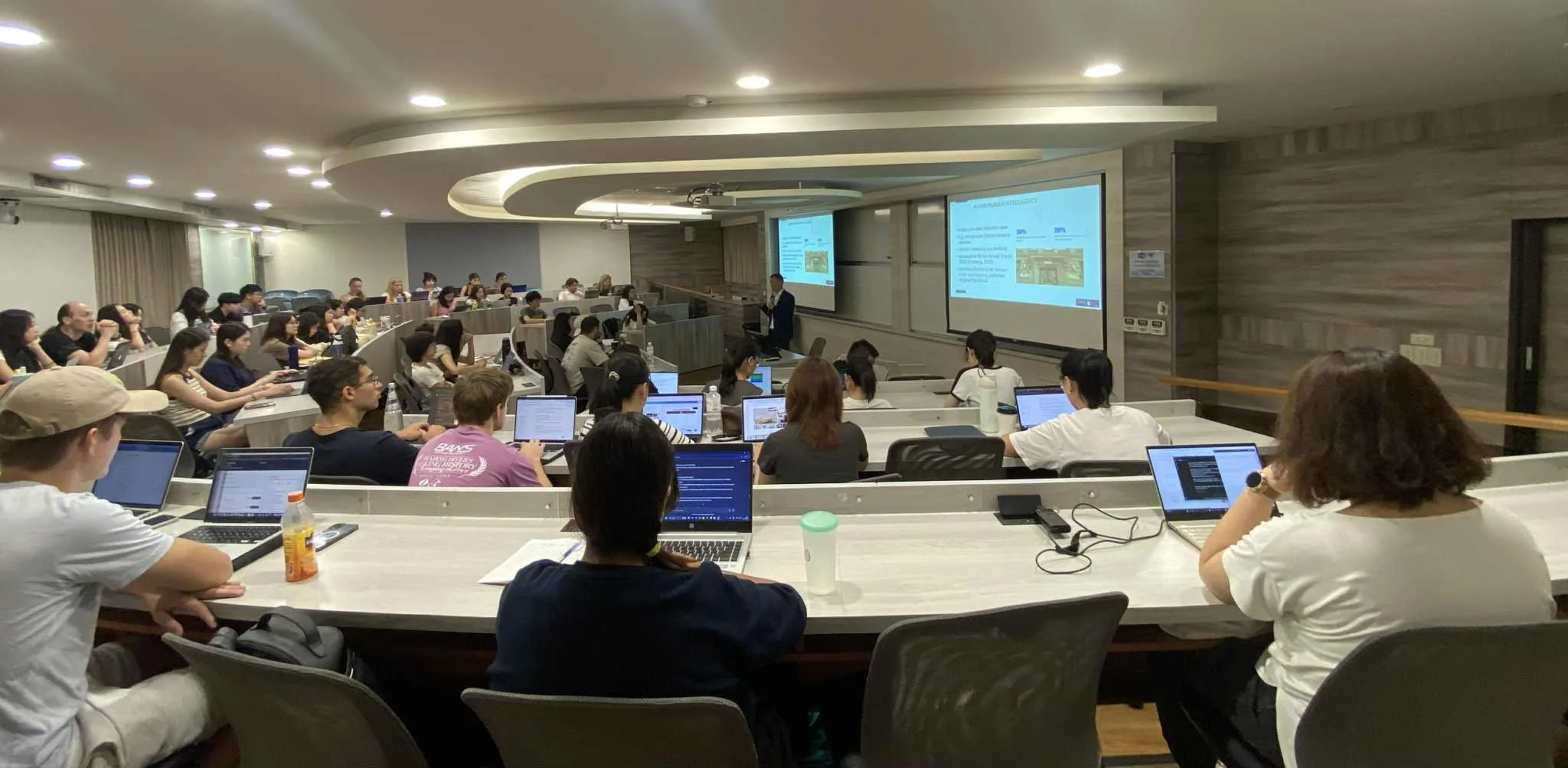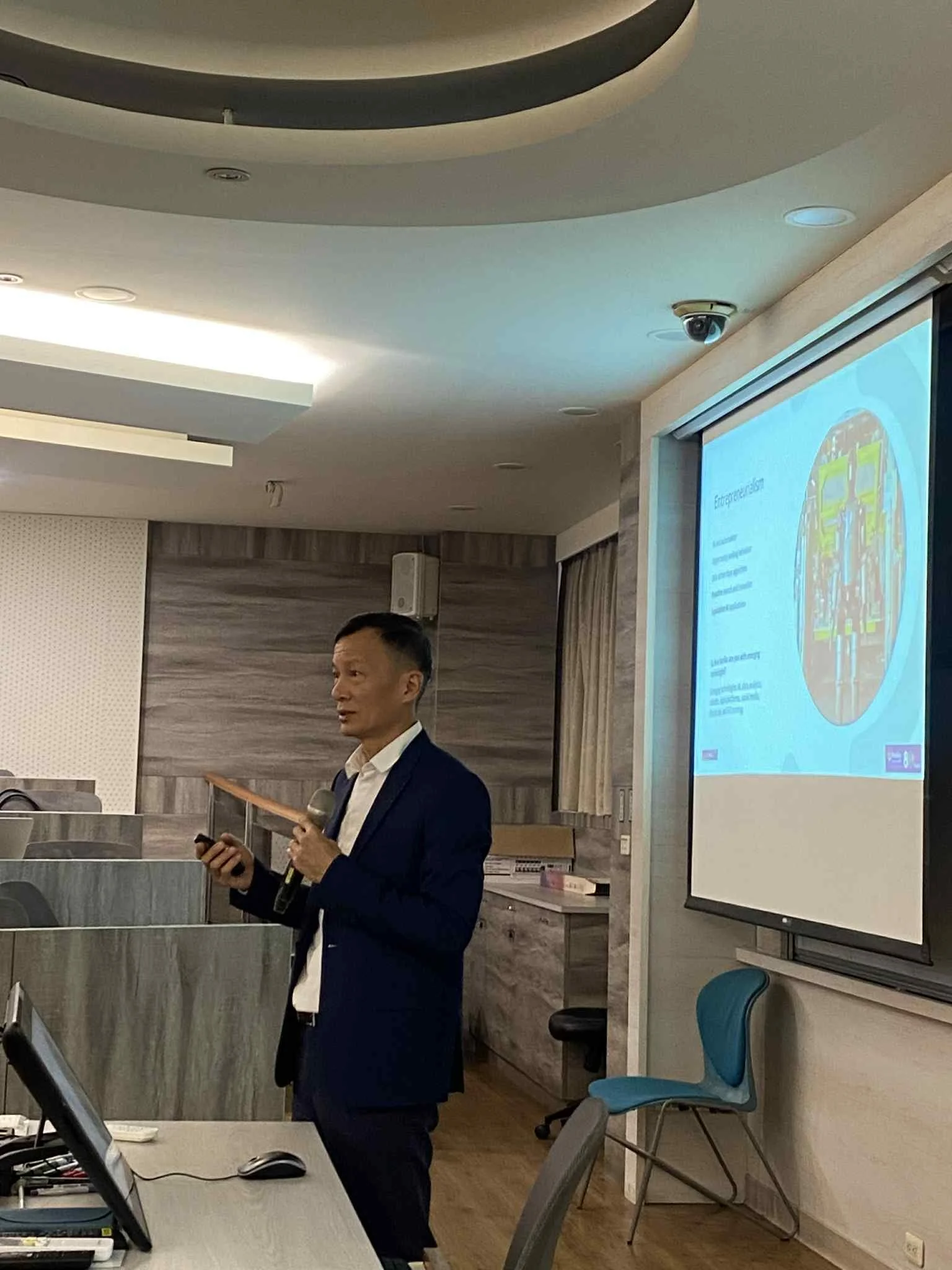Exploring the Future of Business: When AI Meets Entrepreneurialism
Written by Celine Chen
Last week, students in the International Business Management course had the opportunity to attend an insightful guest lecture from Professor Teck Young Eng (Head of Henley Business School Malaysia). He explored the intersection between entrepreneurialism, emerging technology, and the rapidly changing global business landscape. The lecture also highlighted how artificial intelligence (AI) and machine learning are transforming industries worldwide, and Professor Eng challenged students to think critically about how these technologies are shaping the future of global commerce.
The talk began with a look at the roots of innovation in Silicon Valley and how its culture of experimentation continues to influence entrepreneurs around the globe. Professor Eng drew connections between this entrepreneurial spirit and the current explosion of AI-driven startups, noting that companies in both the United States and India are at the forefront of integrating AI into their company operations. From automating logistics and data analysis to enhancing customer experience, AI has already begun to “take over” many aspects of business.
However, the discussion also shared a word of caution. While technological advancement offers immense benefits, research shows that overreliance on AI can inhibit independent thinking and reduce human problem-solving abilities. Professor Eng emphasized that true innovation requires balance—entrepreneurs must use technology as a tool for insight and efficiency, not as a substitute for creativity or critical reasoning.
Furthermore, the conversation placed artificial intelligence in historical context, comparing today’s technological revolution to the early days of the Internet. Just as the Internet spread information widely but introduced new challenges around inaccuracy, AI demands that users continue to validate information continuously. The rise of AI has also led to increasing polarization in how quickly countries and companies adopt and implement new technologies. The lecture noted that a handful of tech giants and advanced economies currently dominate this field, potentially widening the digital gap globally.
In closing, the lecturer addressed one of the most pressing issues in today’s AI-driven economy: ethics. AI may be capable of replacing certain human functions, but it cannot take responsibility for its actions. The future of business, therefore, depends on how humans choose to integrate AI—not as a replacement for human skill, but as an enhancement of human potential.
Ultimately, the lecture reminded students that while technology continues to evolve, the most valuable business assets will always be human intelligence, creativity, and cultural understanding.


